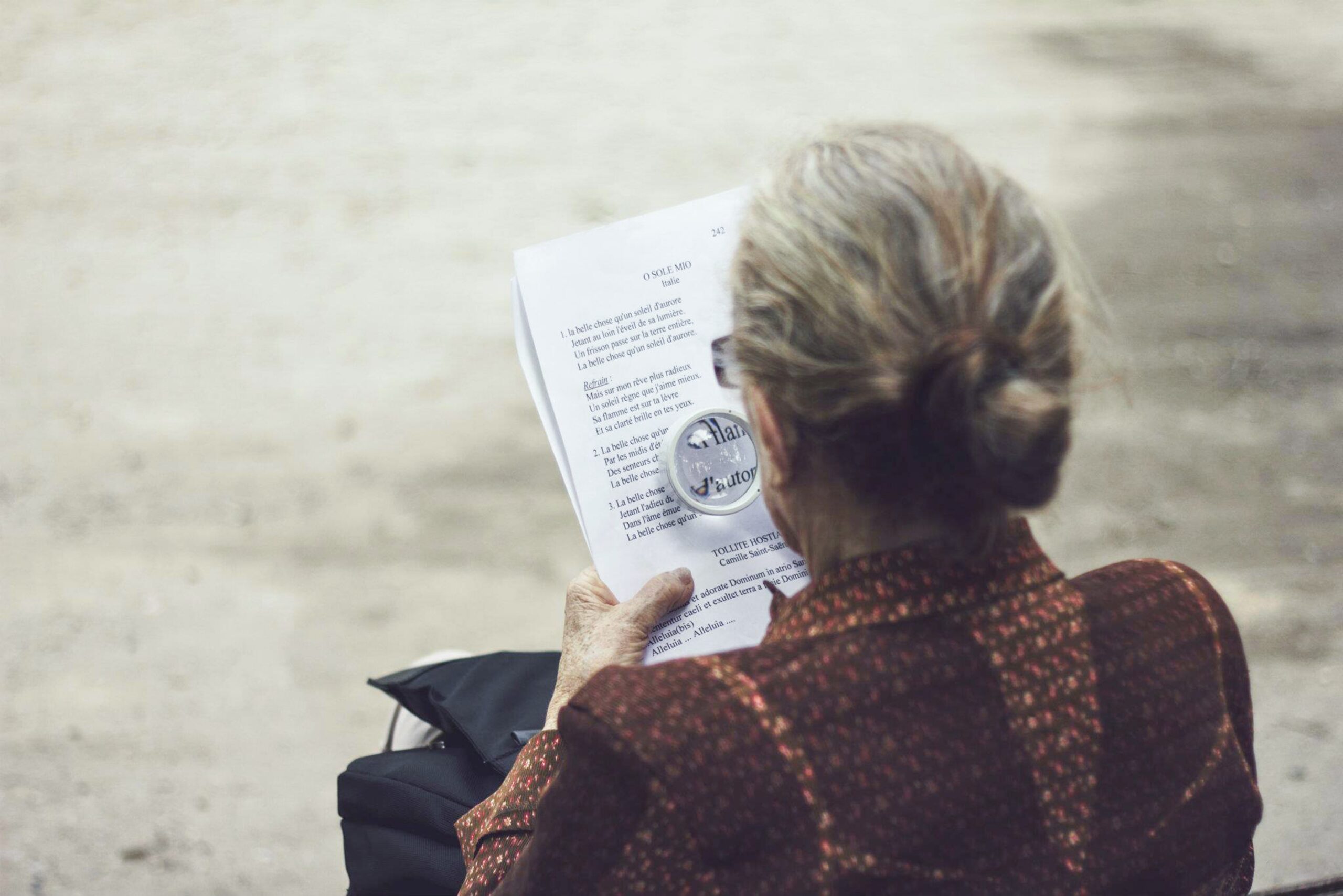
Author: Chuan-Yung (Rita) Yen
Putai Senior High School
September, 2020
Abstract
The purpose of this research is to provide several methods of decreasing the aging process. Since there are many countries that become aging societies, we begin to find methods to help people reach longevity. In this research, it will mention three beneficial ways that are now widely discussed which are Calorie restriction, NAD level, and blood plasma rejuvenation. By using these three ways, they can not only make human younger but also healthier. Recently, scientists are looking forward to do further experiments on patients who recover from Covid- 19, and help the damaged organs to have a better recovery. People are still concerned about the feasibility and wish to see more further research.
Longevity is no longer a dream for human beings in the future
Have you ever wonder why people getting older and older? In science, the term for the process of getting older is called aging. Aging is the decline in tissue structure and function and is the process that all people have to go through. The main factors of aging are caused by free radicals, inflammation, glycation, and stress. These factors will damage the DNA and cause senescent cells form. Senescent cells are cells that do not divide anymore and remain at the phase G0 in cell reproduction. These cells believed to be the main factor that cause aging process. When the body accumulates too many senescent cells, they can lead to either cancer or aging or even more serious, death. Therefore, people begin to seek the method to reduce senescent cells lead to aging process and reverse age. Until now, there are several ways that scientists have discovered and there are calorie restriction, NAD level, and blood plasma rejuvenation.
Calorie restriction means to reduce the intake energy to a level 20-40% lower than the normal. According to Clive Maine, McCay’s research, rats that take in lower calories and fasting have a 33% longer lifespan than the normal ones that have a normal diet. After some further research, scientists concluded that calorie restriction can alter metabolic rate, pulse, body temperature, and blood pressure. Limiting calories can reduce the metabolic rate by 13%. A slow metabolism rate correlates with low levels of thyroid hormones. Fasting can activate an animal’s survival mechanism. If it is activated appropriately, it will lead to longevity. However, this experiment has only been tested on humans for two years due to the unstable factor, and the unknown potential effect on human bodies. The result of the human body experiment did not come out as expected. Several scientists state that the result will be more obvious if the experiment was conducted longer. Since aging is not a disease thus The Food and Drug Administration (FDA) does not allow clinical testing on it. Therefore, its practicality is low.
DNA repair systems play a part in the aging process. The purpose of this system is to repair DNA during replication. One of the main factors in the system is nicotinamide adenine dinucleotide (NAD+) which is linked to the mitochondria. NAD+ is an energy-providing molecule found in every cell of the human body. It is used for metabolism, building new cells, fighting free radicals and DNA damage, and sending signals inside cells. NAD+ level declines with age, and as NAD+ level declined, it is believed to cause a low metabolism and cause senescent cell form when the cell is unable to repair itself. However, NAD does not directly expand lifespan, but it can make the organ healthier and lead to increase lifespan. There are studies prove that increasing animal’s NAD level can cause an increased lifespan. Several companies currently sell dietary supplements containing NAD+ precursors. Few scholars who study cancer claim that increasing the NAD level may promote tumor growth since it provides tumor cells more energy to reproduce. However, since most human studies contain only a short period and with few participants, in order to confirm the NAD supplement safety, scientists need more accurately, and complete on human studies. By clarifying the limitation that each people could absorb a day, and make sure it does not have any other side effect is important and required. Although NAD could enhance body health, people should not take too many due to the lacking of clinical studies , and taking too many NAD can cause negative effects.
Blood plasma rejuvenation is transporting young’s blood plasma to the old one can make the older one younger. The administration of blood factors from young animals to old animals could rejuvenate certain functions which include physical condition and cognitive ability. The method is connecting the circulatory system of young and healthy mice to old and sick mice. The result is shown that young blood could bring new life to the organs of the elderly. Likewise, the older one will tend to be younger as the young ones will be older than they should be. However, since most of the studies use mice, it is still not clear about how much of the percentage can human rejuvenation and the negative effect. The effectiveness of humans is also unknown. Fortunately, Steve Horvath recently study about reversing age found out that several mice epigenetic clock that can compare with human ones. Thus, through the experiments of mice, we will be able to know the exact change rate of human biological age. This is a significant observation and is extremely helpful in further research. Since the youth have better immune system and recuperate quicker than the elder, it can be used to help people recover from permanent damage. Instead of using real blood plasma which may cause some moral concern, scientists decide to use artificial blood.
Scientists have confirmed that by calorie restriction, NAD level, and blood plasma rejuvenation can help people achieve longevity. However, all of these methods are all lacking in human clinical experiments. Calorie restriction is the hardest to trace since it contains excessive uncertainties such as different lifestyle and food intake. FDA strongly urges customers not to believed young plasma infusion due to lacking clinical experiments and exist some risk. In the past, people do not view aging as a disease, however, recently scientists observe one possible direction as help patients to recover from disease damage. Covid -19 pandemic have become a widespread disease. (until June. 23. 2020, there are 9,330 thousand of confirmed cases and nearly 479 thousand death and number are still increasing). Therefore there is a high chance that patients can recover from the Covid- 19, but scientists believed it will cause permanent damage in not only the lungs but also other organs such as heart, kidneys, and brain. Scientists aspect a chance to use young blood plasma transform to provide patients a better recovery. We expect more efforts to invest in this area, and guide human to reach longevity in the future.
References
Mentor: Dr. Eric Hoel, Tufts University
Park, Hyung Wook. “Longevity, Aging, and Caloric Restriction: Clive Maine McCay and the Construction of a Multidisciplinary Research Program.” University of California Press. University of California Press, February 1, 2010. https://online.ucpress.edu/hsns/article/40/1/79/105635/Longevity-Aging-and-Caloric-Restriction-Clive.
Cavallasca, Julie. “Aging 101: Biological Causes of Aging.” Work for human longevity, September 7, 2018. http://www.longlonglife.org/en/transhumanism-longevity/aging/biological-causes-aging/.
Mitchell, Sarah J, Michel Bernier, Miguel A Aon, Sonia Cortassa, Eun Young Kim, Evandro F Fang, Hector H Palacios, et al. “Nicotinamide Improves Aspects of Healthspan, but Not Lifespan, in Mice.” Cell metabolism. U.S. National Library of Medicine, March 6, 2018. https://www.ncbi.nlm.nih.gov/pmc/articles/PMC5854409/.
Shen, Helen. “Cancer Research Points to Key Unknowns about Popular ‘Antiaging’ Supplements.” Scientific American. Scientific American, May 30, 2019. https://www.scientificamerican.com/article/cancer-research-points-to-key-unknowns-about-popular-antiaging-supplements/.
Horvath, Steve, Kavita Singh, Ken Raj, Shraddha Khairnar, Akshay Sanghavi, Agnivesh Shrivastava, Joseph A. Zoller, et al. “Reversing Age: Dual Species Measurement of Epigenetic Age with a Single Clock.” bioRxiv. Cold Spring Harbor Laboratory, January 1, 2020. https://www.biorxiv.org/content/10.1101/2020.05.07.082917v1.full.
Park, Hyung Wook. “Longevity, Aging, and Caloric Restriction: Clive Maine McCay and the Construction of a Multidisciplinary Research Program.” University of California Press. University of California Press, February 1, 2010. https://online.ucpress.edu/hsns/article/40/1/79/105635/Longevity-Aging-and-Caloric-Restriction-Clive.
Cavallasca, Julie. “Aging 101: Biological Causes of Aging.” Work for human longevity, September 7, 2018. http://www.longlonglife.org/en/transhumanism-longevity/aging/biological-causes-aging/.
Mitchell, Sarah J, Michel Bernier, Miguel A Aon, Sonia Cortassa, Eun Young Kim, Evandro F Fang, Hector H Palacios, et al. “Nicotinamide Improves Aspects of Healthspan, but Not Lifespan, in Mice.” Cell metabolism. U.S. National Library of Medicine, March 6, 2018. https://www.ncbi.nlm.nih.gov/pmc/articles/PMC5854409/.
Shen, Helen. “Cancer Research Points to Key Unknowns about Popular ‘Antiaging’ Supplements.” Scientific American. Scientific American, May 30, 2019. https://www.scientificamerican.com/article/cancer-research-points-to-key-unknowns-about-popular-antiaging-supplements/.
Horvath, Steve, Kavita Singh, Ken Raj, Shraddha Khairnar, Akshay Sanghavi, Agnivesh Shrivastava, Joseph A. Zoller, et al. “Reversing Age: Dual Species Measurement of Epigenetic Age with a Single Clock.” bioRxiv. Cold Spring Harbor Laboratory, January 1, 2020. https://www.biorxiv.org/content/10.1101/2020.05.07.082917v1.full.
Smith, Dana G. “The Long-Term Health Impacts of Being Infected With the Coronavirus.” Medium. Elemental, May 19, 2020. https://elemental.medium.com/the-long-term-health-impacts-of-being-infected-with-the-coronavirus-d3a03f3cb6e8.
About the author

Rita Yen Wu
Rita is a senior at the Putai Senior High School in Taiwan.
